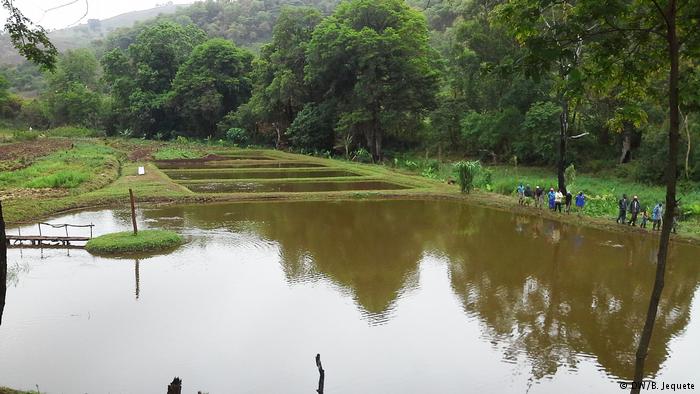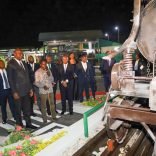Mozambique aluminium smelter still expected to suspend activity next year - South32
Aquaculture generates jobs in Mozambique

DW / Fish tanks of the ProAQUA project
A Small-Scale Aquaculture Promotion Project implemented in Sofala and Manica provinces could provide a scalable basis for the sector’s development, with beneficiaries citing both financial and nutritional benefits.
The Mozambican government, through the International Fund for Agricultural Development (IFAD), is investing US$3.4 million to boost fish farming.
The initiative, which was launched in 2014 and ends in November this year, is being implemented in the districts of Gondola, Macate, Mossurize and Sussundenga in Manica province, and Gorongosa in Sofala.
Lebson Tsanguirene, a beneficiary of the Small-Scale Aquaculture Promotion Project (ProAQUA) in Gondola, says the fish marketing initiative is helping combat poverty.

“Sector personnel have helped us with equipment such as shovels, hoes, picks, and minivans to build the tanks, as well as training in fish farming and its advantages,” he says. “The initiative is helping us a lot, improving our diet as well as generating income.”
Another fish farmer in Mossurize, Jossino Rafael, praised the Mozambican government for implementing the project, as participants’ financial and nutritional situation had improved significantly.
“We are promoting fish farming in Mossurize district in the expectation that it will improve community life and diet. Our Pasi ne Nzara association has 42 tanks and 40 members. We received 10,500 fingerlings and expect to produce a ton and 92 kilograms [of fish] depending on circumstances,” he explained.
Supporting families and developing the sector
Provincial director of Sea, Inland Water and Fisheries of Manica Juvêncio Rosário Quim says that fish farmers have been receiving starter kits, technical support and feed for the fingerlings as well as training, with the aim of making them self-sufficient.
“The project is 87 percent financed by the European Union through IFAD with the rest coming from the Mozambique government, and develops small-scale aquaculture supporting Mozambican families in developing this activity, which is important for food and nutritional security,” he explained.

Director-general of the National Institute for Fisheries and Aquaculture Fernando Momade said that the results obtained so far were encouraging, given that this was a pilot project serving as a basis to define a model of intervention for the development of aquaculture country-wide.
“This project will help us devise a strategy to promote the development of the country’s aquaculture. We will define the implementation project on the basis of these results.”
Since 2014, when the project was launched, 1,113 fish tanks have been set up, 312 in Gorongosa, where over 102 tons of fish have been produced.













Leave a Reply
Be the First to Comment!
You must be logged in to post a comment.
You must be logged in to post a comment.